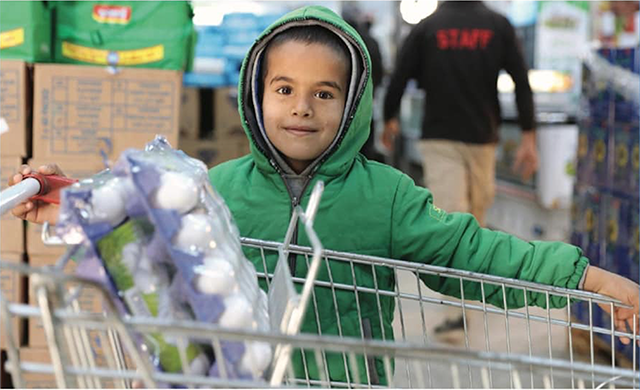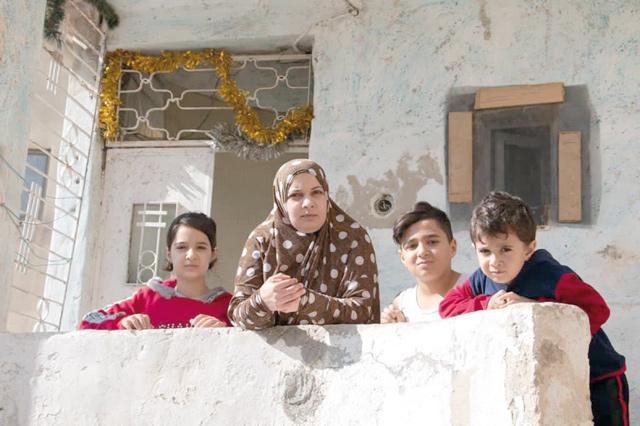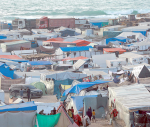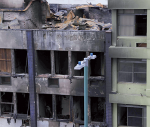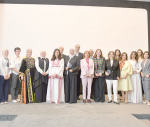You are here
UN official commends Jordan’s handling of COVID-19 pandemic
By Maram Kayed - Oct 21,2020 - Last updated at Oct 21,2020

Anders Pedersen
AMMAN — The repercussions of the coronavirus pandemic “go well beyond the health factor to affect secondary, yet critical, aspects of people’s lives”, said UN Resident and Humanitarian Coordinator in Jordan Anders Pedersen.
In an interview with The Jordan Times, Pedersen said that “if we solely look at the health factor, I think Jordan is relatively one of the safest countries to be right now. Comparatively speaking, and despite rising case numbers, the government has done a good job in maintaining low case numbers without a high number of deaths”.
“However, as we are speaking of human life, one infected and one dead person is still too much,” Pedersen added.
The UN Resident and Humanitarian Coordinator said that “as of day one, the UN planned on helping Jordan on three parallel tracks. First was, quite obviously, the health track, with the UN helping facilitate the access of ventilators and medical equipment smoothly into the country”.
Simultaneously, the UN worked on maintaining its support and help to those who depend on its services, which Pedersen said was a challenge given the national lockdown back in March.
“But thanks to the support of the government of Jordan, we managed to continue to have UN colleagues on the ground for the purposes of keeping life-saving services to refugees and people of concern ongoing,” he said.
The third track, which Pedersen said the difficulty of dealing with “could be seen from a mile away”, was that of the secondary impacts that the pandemic will have on people’s livelihoods.
As Jordan starts to enter the community transmission stage, the UN is working on readjusting its plans to address the socioeconomic impact of the crisis, which Pedersen said will be “massive”.
One of those secondary impacts of concern to the UN is that of the impact on children’s learning. A report by UNICEF noted that children in Jordan have missed out on a significant amount of class time this year.
“Under the leadership of the Ministry of Education, Jordan opened schools in September 2020 with structures and public health measures in place for dealing with COVID-19 effectively. The UN has provided guidance on how decisions to close or reopen schools can be made based on a risk-based approach that takes into account the epidemiological situation, public health measures, the capacity of schools and the impact on children,” said Pedersen.
According to the Ministry of Education’s data, at least 16 per cent of children in Jordan are unable to access DARSAK platform either due to lack of access to technology or the inability of parents to support their children in the process of distance learning.
A joint UN rapid assessment conducted in April found that 26 per cent of children from vulnerable families had no Internet access in their homes.
“Far more families in Jordan lack sufficient devices, connectivity, data and parental support to fully engage with online learning,” stated the UN.
To address this, UNICEF and the Ministry of Education developed Learning Bridges, a blended learning programme that provides accelerated learning and learning recovery for one million children from grade four to grade nine in Jordan.
Another secondary repercussion of the pandemic which is of particular concern to the UN was gender-based violence, which increased by 33 per cent during the first month of the lockdown.
UN Women initial reports show that women and girls are “experiencing heightened emotional and physical abuse with the lockdown, as well as online sexual harassment and cyber-bullying”.
Moreover, an increased number of child marriage cases were reported in Zaatari refugee camp compared with the same period last year.
Beyond Jordan, the pandemic has had a global effect on the UN’s 2030 Sustainable Development Goals (SDGs).
“What we are seeing is that five years into the implementation of the SDG goals, and after significant progress that has truly made the world a better place, these goals have taken a serious negative hit,” said Pedersen.
He added: “As always, the most vulnerable countries are to take the biggest hits. In Jordan, relatively speaking, the government has done a good job in trying to mitigate the pandemic’s effect, although of course in terms of poverty and unemployment and so on, they are still quite serious effects.”
When it comes to Syrian refugee camps, one of the most vulnerable segments in Jordan, the handling of the virus was described as “model material” by Pedersen.
Out of the two refugee camps, Zaatari and Azraq, a total of 86 cases were detected until end of last week.
“The refugees in camps are doing exactly what they have to in terms of protective measures and that is something we are very proud of. They are truly a model for the rest of the country,” added Pedersen.
With the UN’s 75th anniversary being marked in 2020, the UN in Jordan launched a survey as well as held roundtable dialogues in several governorates of the country to hear from the people on what the UN needs to integrate in its programmes.
“What seems to be of people’s utmost concerns is first, a concern for security, second, a concern for the most vulnerable, and third, a concern for the loss of solidarity between people,” noted Pedersen.
The online survey, which got over 7,000 respondents, had the main aim of “bringing the UN closer to the people in Jordan”, stated Pedersen, concluding that “I want the Jordanian people to know that the UN is here to serve them.”
Related Articles
AMMAN — In these exceptional circumstances and the current unprecedented health crisis, the UN in Jordan shares the concerns that many peopl
AMMAN — Being the second largest host of refugees per capita in the world, Jordan has been “an exemplary host country” for Syrian refugees f
AMMAN — Chairman of the Joint Chiefs-of-Staff Lt. Gen.


